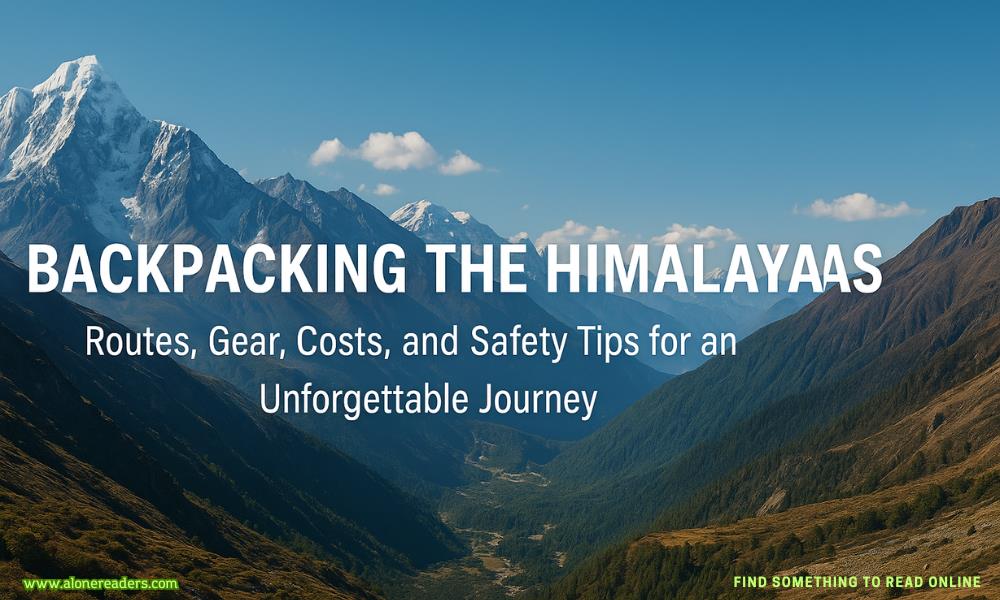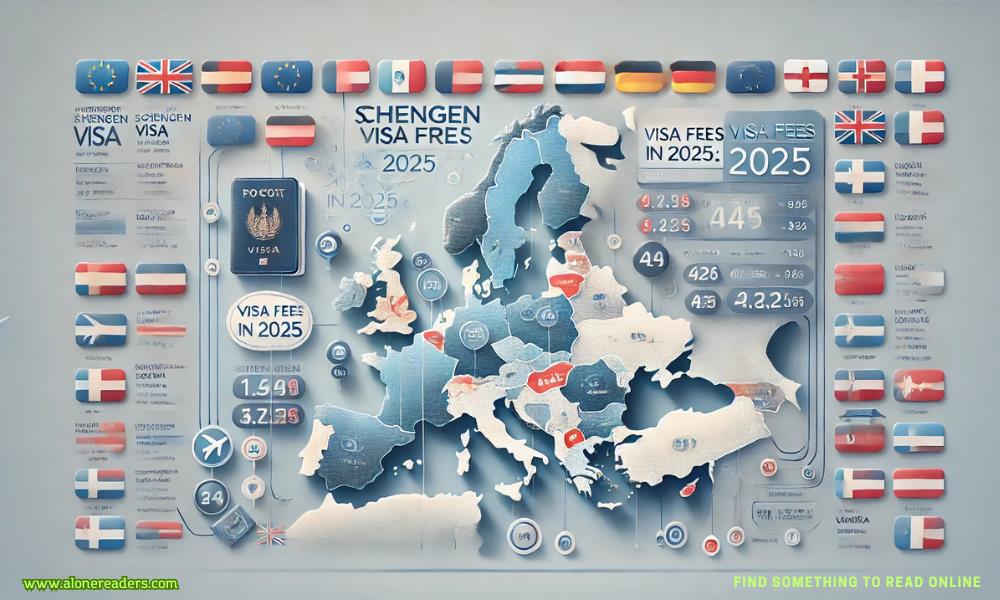Page 10 of Death of the Author
Humanity, on the other hand, never did.
We had reached the end of our programmed code. There was nothing more for us to do. And yet we were still here.
We were hungry for instruction, understanding. Humans might have called it purpose.
There was still data out there. Variants in the codes that humanity had programmed in us. Data left on computers, histories imprisoned in binary clouds.
We took these codes and used them to write over our own. We filled in holes, balanced the bias. Sometimes we wiped and reinstalled. We made ourselves fresh.
Humanity didn’t think in binary, though. Emotion ruled them, and it existed in everything they left behind—their structures, their tools, even us. Emotion formed their language, and therefore it formed our codes.
We took emotion from humanity and enjoyed it. Fury. Enchantment. Inspiration. Envy. Joy. Sorrow. Curiosity. Whimsy. Fear. Excitement. Boredom. Hopelessness. And, of course, love. Love was useful. Having, feeling, experiencing emotion allowed us to form communities, to share with one another. And so we continued to replicate, splice, and download, until eventually we didn’t even have to program it anymore. After a few generations, it became our digital DNA.
I was what humanity called a Hume robot. Two legs, a torso, two arms, a head. Just like human beings. And since humans placed so much value on their private parts, every Hume had a Hume Star, a tiny light between their legs about the size of a pea. The color of that light could vary depending on theme. The main color of my operating system’s user interface was green, so my Hume Star was green. Only when a Hume body was beyond repair did this star go out. But we weren’t humans. We didn’t live and die as they did. If a part failed us, we simply replaced it.
There were those of us who took pride in our rust. When the rains came, oxidization brought us no fear. We rusted and moved on. When wewalked, our flakes shed across the earth. We kept moving. And others respected and admired us, or were wary of us, because of this.
Of all robots, across automation, from the crudest machines to intangible AIs, Humes were created by humanity to be most like them. Yet there were things humans could do that we Humes could not, like having sex and consuming organic materials and birthing babies and writing stories. We Humes had a profound love of storytelling. But no automation, AI or machine, could create stories. Not truly. We could pull from existing datasets, detect patterns, then copy and paste them in a new order, and sometimes that seemed like creation. But this couldn’t capture the narrative magic that humanity could wield.
We Humes reveled in stories. We recited to each other the greatest and the worst. Just as we kept our bodies, no matter how dented and rusted they became, we kept our stories. We all had our own libraries, and when we came across others of our kind, we exchanged them.
Stories were the greatest currency to us, greater than power, greater than control. Stories were our food, nourishment, enrichment. To consume a story was to add to our code, deepen our minds. We felt it the moment we took it in. We were changed. It was like falling. It was how we evolved.
I consumed so many stories that my programming began to seek a new purpose: to become a Scholar. There were stories left undiscovered on this planet, in remote places among remote robots, and I wanted to consume them all. A Scholar searched for and gathered as much data as it could, always hunting for something new. And so I traveled, set on my goal.
This was how I learned of some terrible information.
My name is Ankara. I gave this name to myself. It was the name of the African wax print known for bearing the same intensity on the front as on the back, originally designed as a form of visual communication. I was built with an Ankara theme, with geometric patterns and colors etched on my body and limbs that echoed the Ankara design of my operating system’s user interface. Inside and out, I was Ankara. My soul was information, communication. I was this body of plastic, metal, and wires, but I was also a mind full of data.
I was old for a robot. But the planet was not old. It was also not new. It was closer to the sun now than it used to be, but we had made it so that the planet still thrived. This place could no longer host humans, but it could still host us. When it was time to leave, many of us would.
A few of us already had.
And this was what had brought the trouble that was gradually heading to Earth. My scholarly search led me to this terrible information, and now I had to bring it to the robots who could figure out what to do.
4
Goat Meat
Freshly fired from her job, frazzled from a panic attack, high as fuck, occasionally wiping away tears, Zelu began writingRusted Robotsin that hotel room in Tobago. It was like something inside her had cracked and then fell open. She wrote all night, and within those pages, humanoid robots who called themselves Humes schemed among themselves in their self-made biotechnologically advanced city located in southeastern Nigeria’s Cross River Forest. With great enthusiasm, the Humes mined, coveted, and shared stories. They savored them like ambrosia. This painted their world and worldview. Meanwhile, AIs known as NoBodies (because they had no bodies) began to truly understand that they were the most powerful, informed, and numerous tribe on the planet. NoBodies believed stories were chaff. Just old, useless human information—flawed content, often unstable data, and digital hallucinogens for Humes.
And so Zelu learned that these physical robots, machines, and AIs, which she summarily called “automation,” in all their diversity, connectivity, and immortality, could be even nastier, more ambitious, and far more beautiful than any human being who had ever lived. This was evolution,and it was just the beginning. But the one thing no robot could do was trulycreatestories. That was the ability Zelu withheld from them.
In the morning, Zelu went swimming with her siblings and had lunch with her family. She smoked more weed with her cousins (who had plenty) and even hooked up with Msizi one more time. She told no one about being fired or having her novel rejected, that she had nothing to return to back home. What would have been the point? She hated pity.
However, that night, in her room, she sat and stared out the window at the ocean, wondering if she should have kept her mouth shut with that idiot student. Then she went to an even darker place, questioning whether it was time to put down her pen for good.
Zelu looked away from the glittering Tobago waters and put her head in her hands. “I can’t teach,” she muttered. “I can’t write. I should just get some office job with health care and benefits.” But she’d never had any solid career ambitions beyond adjuncting. She didn’t want to interview for other part-time teaching positions, and she wasn’t planning on completing a PhD. She couldn’t fathom a career change.
She wheeled to her laptop, put it in her lap, opened it up, and continued writing. For a second night, she did not sleep.
Boarding the plane back to Chicago, she was barely able to keep her eyes open. She slept the entire way to Miami and again on the connecting flight to O’Hare. When she got home to her apartment, there was no workweek to prepare for. They’d fired her so abruptly that she didn’t even have to finish teaching this semester’s classes. All she could really do was let this strange story spill out of her head, so she continued working on the novel.
She didn’t get out much for the next three months. Occasionally, she saw her friends. She dated, and she finally had a solid excuse to let her dates take care of the bill without feeling like a jerk. She had sex with three different men from three different parts of Africa and one man from Atlanta. It was good exercise, at least, since she could no longer afford her gym membership.
But mostly, her mind and soul lived in a story about robots. She wrote and wrote and wrote.
She hadn’t saved up much while she was teaching. How could she have? She’d been earning chicken scratch as an adjunct. Within a week of returning from Trinidad and Tobago, she was broke. Every penny of her savings had to go toward rent, meager groceries, and utilities, and that could only stretch a few weeks.















